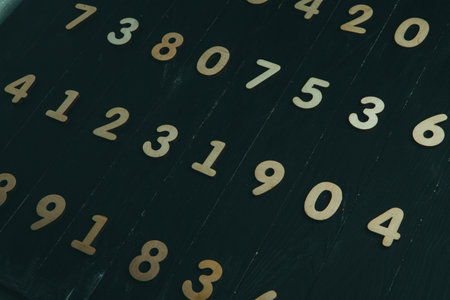Historical Overview of Patronymic and Matronymic Naming in England
The origins of English surnames are deeply intertwined with the evolution of patronymic and, to a lesser extent, matronymic naming traditions. During the early medieval period, as communities in England grew more complex, it became necessary to distinguish between individuals sharing the same given names. This necessity led to the widespread adoption of surnames based on lineage—most notably, patronymics derived from the father’s name (such as Johnson, meaning “son of John”). Although matronymic surnames—those based on the mother’s name—were far rarer, they still appeared, especially in instances where maternal identity was more socially significant or where paternal lineage was unknown.
These naming conventions were not merely practical; they mirrored the familial and societal structures prevalent throughout English history. In a society where inheritance, property rights, and social standing were often determined by one’s family connections, surnames served as enduring markers of heritage and legitimacy. Over centuries, what began as descriptors gradually transformed into fixed family names, becoming integral to personal identity and reflecting broader shifts in English social organisation. As we delve into the numerological aspects of these naming traditions, it is essential to appreciate how their historical development reveals patterns of kinship and authority that have shaped English society through the ages.
2. Cultural Significance and Regional Variations
The landscape of English patronymic and matronymic naming traditions is far from uniform; instead, it is a patchwork shaped by distinct regional identities, local customs, dialects, and pivotal historical moments. Across England, Scotland, Wales, and Northern Ireland, these traditions reveal the complex interplay between numerology, language evolution, and socio-political influence.
Regional Naming Patterns
While the use of patronymics (derived from the fathers name) is widespread in England, certain regions have developed unique variations or retained older forms longer than others. For instance, surnames ending in -son are especially prominent in northern England (such as Johnson or Williamson), reflecting Norse influence from historical Viking settlements. In contrast, Welsh naming conventions historically favoured the prefix ap (meaning “son of”), leading to names like Ap Rhys (eventually anglicised to Price).
Influence of Local Customs and Dialects
Local dialects significantly impact surname formation and spelling. In Cornwall, for example, matronymic surnames such as Jenefer or Margery can still be traced in certain families, reflecting a rare but notable inversion of the more common patronymic tradition. Additionally, dialectal differences affect pronunciation and spelling—what might be rendered as “Mac-” in Scotland becomes “Mc-” or even omitted entirely in other regions.
Regional Variations Table
| Region | Common Patronymic Forms | Matronymic Occurrences | Historical Influences |
|---|---|---|---|
| Northern England | -son (e.g., Richardson) | Rare | Viking/Norse Settlements |
| Wales | ap- (e.g., ap Owen → Bowen) | Sporadic | Celtic Heritage & Anglicisation |
| Cornwall | -s (e.g., Johns) | More Common (e.g., Jenefer) | Celtic Linguistic Retention |
| Scotland | Mac-/Mc- (e.g., MacDonald) | Very Rare | Gaelic Tradition & Clanship |
| Northern Ireland | O/Mac- (e.g., ONeill) | Rare | Irish Gaelic Influence |
The Role of Historical Events
The evolution of these naming conventions cannot be separated from key historical events. The Norman Conquest introduced new administrative systems that required fixed surnames for taxation purposes, prompting the gradual abandonment of fluid patronymics in favour of hereditary surnames. Later waves of migration and industrialisation further diversified surname structures across the UK. As a result, numerological analysis today must account for both ancient roots and later adaptations driven by shifting social landscapes.
This intricate tapestry of regional variation not only enriches the study of numerology within English naming traditions but also serves as a living record of the United Kingdom’s cultural diversity and historic complexity.

3. Numerological Foundations and Interpretations
Numerology, an ancient system that assigns symbolic meanings to numbers, has long fascinated those who seek deeper insights into names and their influences. Within the context of English patronymic and matronymic naming traditions, numerology offers a unique framework for understanding how inherited surnames may shape an individual’s identity or destiny.
Core Principles of Numerology
At its core, numerology is based on the premise that each letter in the alphabet corresponds to a particular number. The most widely used system in the UK is the Pythagorean method, where letters are assigned values from 1 to 9. By converting each letter of a name to its numerical equivalent and summing these values, one can derive key numbers said to reveal aspects of personality, potential, or fate.
The Analysis of Names: A Step-by-Step Approach
In English naming traditions, both patronymic (derived from the father’s name) and matronymic (derived from the mother’s name) surnames are analysed by first spelling out the surname in full. Each letter is then matched to its corresponding number. For example, ‘Johnson’ (a common patronymic surname meaning “son of John”) would be numerologically reduced and interpreted according to established meanings for each resulting number.
Cultural Relevance within England
While numerology is not a mainstream practice in British society, it holds a niche appeal among those interested in genealogy or esoteric studies. Analysing traditional English names through numerology often provides an additional layer of understanding about family heritage—particularly when tracing the evolution of surnames across generations. It also reflects Britain’s historical openness to various mystical and philosophical systems, merging them with local customs and language.
By grounding numerological analysis in the structure of English patronymic and matronymic naming conventions, individuals can explore not only linguistic history but also the subtle interplay between personal identity and ancestral legacy.
4. Case Studies: Patronymic and Matronymic Names in Practice
To appreciate the interplay between numerology and English naming traditions, it is instructive to examine specific patronymic and matronymic surnames that have shaped British society. These names not only reveal familial lineage but also carry numerological resonances that can subtly influence identity and social perception.
Notable Patronymic Surnames
Patronymic surnames, derived from the fathers given name, are abundant in England. Names such as Johnson (son of John), Richardson (son of Richard), and Harrison (son of Harry) illustrate this tradition. Numerologically, each surname can be broken down into numbers using the Pythagorean method, with each letter assigned a value from 1 to 9. The resulting sum is then reduced to a single digit or master number, which reflects key traits associated with the bearer.
| Surname | Origin | Numerological Value | Numerological Meaning |
|---|---|---|---|
| Johnson | Son of John | 1 | Leadership, Independence |
| Richardson | Son of Richard | 6 | Responsibility, Caretaking |
| Harrison | Son of Harry | 7 | Introspection, Analytical Mindset |
Prominent Matronymic Surnames
While less common, matronymic surnames—derived from the mother’s name—also exist within English culture. Examples include Maddison (son of Maud or Maddy) and Tiffanys. These surnames often arose in instances where maternal lineage was particularly significant, whether due to inheritance or social status.
| Surname | Origin | Numerological Value | Numerological Meaning |
|---|---|---|---|
| Maddison | Daughter/Son of Maud/Maddy | 8 | Ambition, Authority, Material Success |
| Tiffanys | Daughter/Son of Tiffany | 5 | Dynamism, Adaptability, Freedom-Seeking Nature |
The Role of Numerology in Everyday Life
The numerological interpretation of these names goes beyond mere curiosity. In British culture, surnames often inform first impressions during introductions, interviews, and official documentation. The resonance of a surnames number may influence how its bearer is perceived: for instance, a “Johnson” might be unconsciously associated with leadership qualities in professional settings, while a “Maddison” could be seen as ambitious or authoritative. Such subtle associations underscore how the intersection of numerology and nomenclature continues to shape personal narratives within everyday British life.
5. Modern Adaptations and Contemporary Attitudes
The landscape of English naming conventions is experiencing a notable transformation, as modern society increasingly questions traditional norms and embraces more diverse expressions of identity. Historically, patronymic (father-derived) and matronymic (mother-derived) surnames were largely fixed and inherited through the paternal line, with exceptions mostly reserved for unique circumstances or the upper echelons of society. Today, however, both individual choice and cultural sensitivity are reshaping how names are adopted, adapted, or revived.
Current Trends in Name Usage
In contemporary Britain, there is a discernible rise in the popularity of double-barrelled surnames—a practice often employed by couples wishing to merge their family identities upon marriage. This trend reflects a broader movement towards gender equality and mutual respect within relationships. Additionally, some parents choose to bestow children with matronymic surnames, either exclusively or in combination with patronymics, as an assertion of maternal heritage or in recognition of non-traditional family structures.
The Numerological Perspective
This renewed flexibility in naming also invites fresh interpretations within numerology. As families blend different surnames or create entirely new ones, the underlying numerical energies shift accordingly. Many individuals consult numerological principles when considering these adaptations, hoping to select combinations that foster harmony, prosperity, or personal growth in accordance with their aspirations and values.
Cultural Identity and Social Change
The revival and adaptation of patronymic and matronymic names are closely intertwined with broader societal changes. With increasing awareness of multiculturalism and the importance of representing both sides of one’s lineage, people are more inclined to adopt naming practices that reflect complex familial histories. Furthermore, the acceptance of LGBTQ+ families and single-parent households has encouraged a move away from rigid patriarchal naming traditions, allowing for greater expression of individual identity through names.
Ultimately, these contemporary attitudes towards naming demonstrate a dynamic interplay between tradition and innovation. The numerological implications serve as both a guidepost and a mirror for evolving social values—ensuring that English naming customs continue to adapt in ways that honour both ancestry and personal choice.
6. Conclusion: The Enduring Role of Numerology in English Naming
Reflecting upon the intricate interplay between numerology and traditional English patronymic and matronymic naming conventions, it becomes clear that these systems have exerted a profound and lasting influence on both personal identity and collective cultural heritage across the UK. While contemporary British society may not universally practise overt numerological analysis when naming children, the echoes of these ancient systems persist in our surnames, family histories, and even our subconscious perceptions of what constitutes a “proper” or auspicious name. The deep-rooted significance of names—rooted in familial lineage, local tradition, and sometimes subtle numerical symbolism—serves as a powerful reminder of how cultural beliefs shape individual destinies.
From the earliest Anglo-Saxon settlements to the present day, numerological ideas have subtly informed naming choices, whether through the reverence for certain numbers or the transmission of lineage through patronymic and matronymic structures. This enduring legacy is woven into the tapestry of British society, providing a sense of continuity and connection with ancestors. Even as modern Britons adopt more diverse and global naming practices, the underlying frameworks of tradition and meaning continue to influence choices at every level—from royal succession to everyday family life.
Ultimately, English naming traditions and their numerological undercurrents offer more than just linguistic or genealogical interest; they represent a living bridge between past and present, binding individuals to their roots while allowing room for evolution. In this way, numerology acts not only as a historical curiosity but as an ongoing force shaping British identity, perpetuating values, beliefs, and communal belonging that are as relevant today as they were centuries ago.

